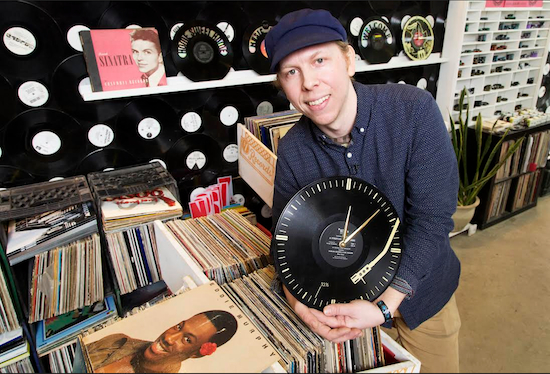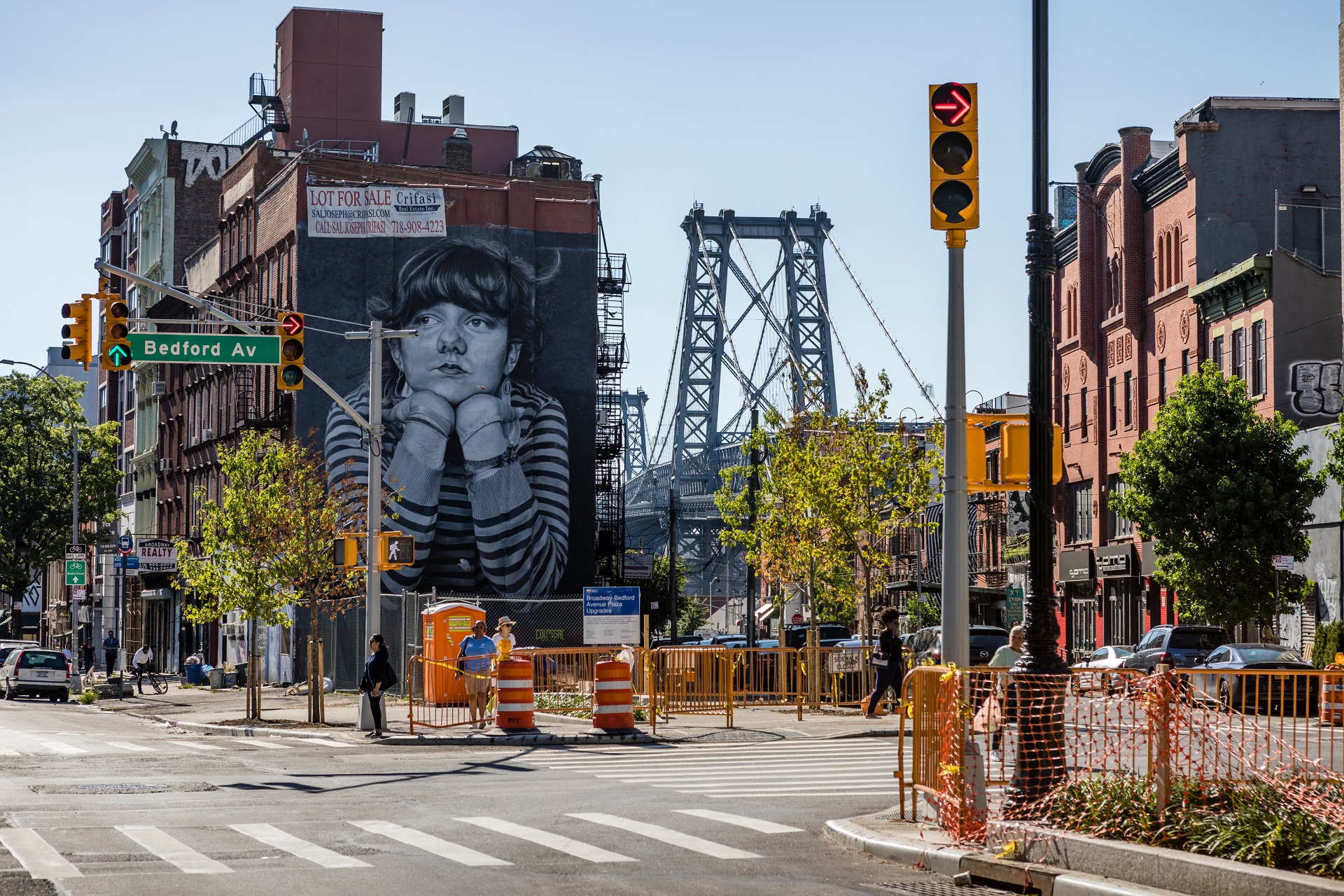Spinning vinyl into art: East Williamsburg shop recycles records for novelties

Patrick Chirico, owner of Wrecords By Monkey, poses with a clock his company has made from a recycled record at his production shop in East Williamsburg. Chirico gets his raw materials from the surplus of used-record stores. AP Photos/Mark Lennihan
These vinyl records give “remaster” a new meaning.
An entrepreneur transforms the lacquered discs into jewelry, clocks, wall art and other novelties, with the perk of keeping a little more trash out of the environment along the way.
